CIA Sponsored Terror, Civil Liberties, Human Rights, Truth to Power, War Resister
Podcast: Play in new window | Download
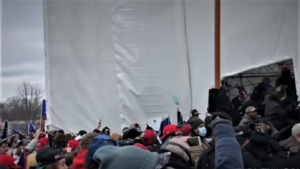
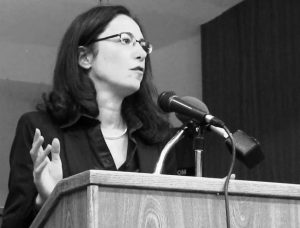
Attorney Mara Verheyden-Hilliard: Law Enforcement Caught Off Guard On January 6th?
Many are saying that the police were caught off guard when rioters stormed the nation’s capitol on January 6, 2021, leaving four people dead. It was the most significant breach of Congress in more than 200 years, and pro-Trump rioters promised that it won’t be the last. In their violent and lawless efforts to upend what they called a fraudulent election, they faced minimal police resistance. Far-right mobs smashed windows and doors, stormed the Capitol behind a traitorous, terrorist Confederate flag, and broke into the Senate chamber.
Unlike Black Lives Matter protesters and legions of peaceful protesters before them, police have consistently used potentially lethal weapons to disburse and social justice mass demonstrations. But how could the Capitol be unprepared? Word on social media and in the news was that fascists planned to converge in throngs prior to the changing of presidential administrations.
Guest – Attorney Mara Verheyden-Hilliard, with the Partnership for Civil Justice Fund, that is partnering with the newly-formed Center for Protest Law and Litigation, to demand a fully public investigation into law enforcement’s handling of the riot on the Capitol Building on that day that shocked much of the nation.
—
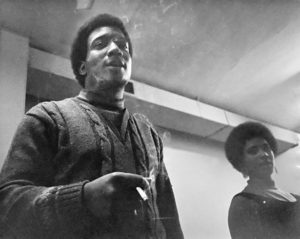
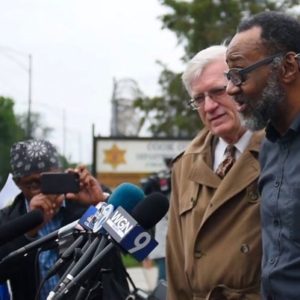
Fred Hampton: The Fight For Truth
Fred Hampton was the young dynamic leader of the Chicago chapter of the Black Panther Party. On December 4, 1969 he was assassinated. An assassination is a political murder. He was assassinated as part of FBI leader J. Edgar Hoover‘s Cointelpro program. Cointelpro was initiated by Hoover to disrupt, destroy and neutralize the Party and the civil rights movement. Malcolm X and Martin Luther King had already been killed under suspicious circumstances.
Chicago attorney Flint Taylor of the Peoples Law Office, who along with Jeff Haas, Dennis Cunningham, and Morton Stavis of the Center for Constitutional Rights was part of a team that after 13 years of litigation were able to prove that the FBI, the Chicago police, and the Chicago States Attorney were guilty of killing Fred Hampton, his fellow Black Panther Mark Clark, and wounding several others.
The murders took place in a pre-dawn raid on Hampton‘s apartment. An FBI informer, William O’Neal, supplied the killers with a map of the apartment showing where Fred was sleeping. and drugged, probably by O’Neal, when the police opened fire with a hail of 90 bullets. A Chicago police officer fired two shots into Hampton’s head at close range as he lay in bed.
It has recently been disclosed that O’Neal’s control control agent. Roy Mitchell, was paid a bonus for his and O’Neal’s role in the assassination, and that Hoover, and his top lieutenants William Sullivan and George Moore, were aware of O’Neal’s activities and authorized this award directly after the raid. What are the lessons we can learn from this? Is the FBI still carrying on Cointelpro type operations? How do we protect ourselves?
Guest – Attorney Flint Taylor, Flint and Jeff Haas have recently written an article about the new information which can be found on Truthout and the Black Agenda Report. Flint, welcome back to Law And Disorder.

————————————–
Civil Liberties, Criminalizing Dissent, Human Rights, Surveillance, War Resister
Podcast: Play in new window | Download
- GTMO Commentary By Lawyers Guild Show Host Jim Lafferty
—-
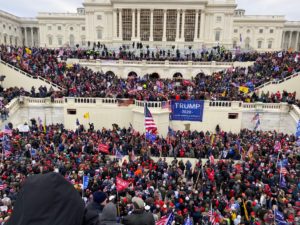
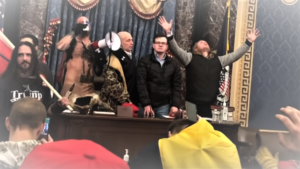
Brian Becker on Inauguration Protests, Security and Reform
Americans have protested incoming presidents throughout history, starting in the 19th century. Four years ago, thousands descended on the nation’s capital this to protest Donald Trump’s inauguration, and more than 200 were arrested. The day before President Woodrow Wilson took office in 1913, up to 8,000 women marched down Pennsylvania Avenue in what one historian says was likely the first large-scale inauguration protest. The suffragists, who’d gotten a parade permit, were pushed, spat upon, and beaten. Many women were hospitalized, and the treatment of the women led to the firing of the capital’s police chief.
In 1969, anti-war protesters threw burning miniature flags and stones at police during Richard Nixon’s inauguration. During Nixon’s 1973 inauguration, a ‘massive anti-war protest was staged at the Lincoln Memorial, with an estimated 100,000 people were present and participated in a “March against Death.” 80 Congressmen joined the demonstrations and boycotted the inaugural ceremonies.
The demonstrations at Bush’s inauguration in 2001 were the first major protests at a presidential inauguration since the protests against Nixon in 1969 and 1973. At least 20,000 people demonstrated in the capital and along the inaugural parade route in defiance of the Supreme Court ruling in Bush v. Gore. “Selected not elected” and “Hail to the thief” were some of the slogans on signs at the protest. Four years later, more than 1,000 demonstrators were at Bush’s inauguration, largely to protest the Iraq war, as the president was sworn in for his second term.
Two weeks before the Biden inauguration, Trump-loving lawbreakers ransacked the Capitol building. Combined with the COVID pandemic, last week’s inauguration was pared down, and a ring of law enforcement encircled the metropolis.
Guest – Brian Becker, director of the ANSWER Coalition and host of The Socialist Program podcast.
—-

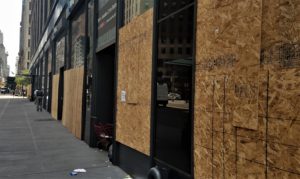
A Path Forward: Professor Jack Rasmus
The word “chaos“ best describes the current American situation. Public health, an economic disaster, institutional racism, and political turbulence were rampant as Trump vacated the White House. America leads the world in the number of COVID-19 cases. The number of deaths, which are now over 400,000, are mounting rapidly.
The economy is in terrible shape.. Perhaps 20 million people are unemployed. Small businesses are shuttered. Millions face eviction. Hunger is rampant, especially among children. What does the future hold? Are we really free of Trump and Trumpism? What will Biden do?
Centrist Democrats like Biden, since the remaking of the Democratic Party beginning with neo-liberal Clinton, have not vigorously defended the social gains secured in the 1930s with the Roosevelt New Deal. Will Biden defend these? Will he extend them?
Can he do this by governing from the center?What does his proposed $1.9 trillion rescue package consist of? Will Bidens proposals hold up in Congress? Is there more needed?
Guest – Dr. Jack Rasmus, he holds a PhD in political economy and teaches at Saint Mary’s College in California. Professor Rasmus has written numerous books and articles on economics and is the host of the weekly radio show “ Alternative Visions“ on the Progressive Radio Network.

————————————–
Civil Liberties, Human Rights, Human Trafficking, Political Prisoner, Prison Industry
Podcast: Play in new window | Download
—-
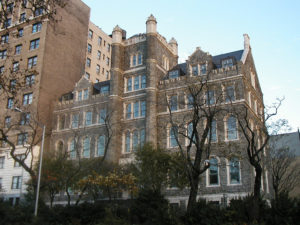
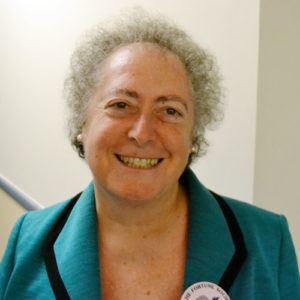
Joanne Page: The Fortune Society
Each year in the United States, more than 600,000 individuals are released from state and federal prisons. A staggering 6.9 million people are on probation, in jail, in prison, or on parole. On top of that, an additional nine million persons cycle through local jails.
As grim as these numbers are, more sobering is the fact that more than two-thirds of prisoners are rearrested within 3 years of their release. Half of those are reincarcerated.
Why is this recidivism rate so high? It has much to do with the failure of re-entry support programs. We have the world’s largest carceral state but no effective support system for people finishing their sentences and re-entering society. Consequently, crime rates soar, more individuals are victims of crime, families and communities suffer when we fail to deal with the consequences of over-incarceration. When reentry fails, the costs are high — more crime, more victims, and more pressure on already-strained state and municipal budgets. There is also more family distress and community instability. Community reintegration impacts several larger areas such as community health, education, employment, family relationships and housing.
In every aspect, failure to support recently released individuals is costly to society.
Guest – JoAnne Page is the President and CEO of the NY-based Fortune Society. Policymakers and researchers frequently cite the organization for its pioneering work. A graduate of Yale Law School, Page cultivated and created many of Fortune’s signature programs including substance abuse treatment, counseling, family services, HIV/AIDS health services, mental health programs, job training and employment services, parenting initiatives, and supportive and permanent housing. Page is a leading authority on issues including prison reform, solitary confinement, wrongful convictions, the over-incarceration of young men of color, sentencing reform, violence prevention, homeless housing, effective policing strategies, legislation, sex offender registries, and more.
—-
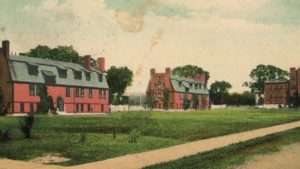
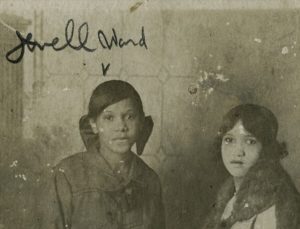
Alison Cornyn: The Incorrigibles
People in America are currently living through multiple crises. The economy is in tatters with unemployment very high. The health situation is a disaster with over a third of 1 million people dead from Covid and tens of millions uninsured.
The educational system has been ravaged, underfunded, inflicted with charter schools. Billionaire right-wing secretary of Education Betsy DeVos has only recently resigned. Almost half of the population is living in poverty. Families are in bad shape with suicides, drug addiction, and divorces soaring. Many don’t have enough food and homelessness is rapidly increasing. All this within the framework of a divided society, deeply impacted by racism.
How does this affect young people? And especially rebellious teenage girls? What laws apply to young people? How are they treated in a criminal justice system, historically and currently? What do we know about the level of abuse and neglect including sexual abuse?
Guest – Alison Cornyn, is a Brooklyn-based interdisciplinary artist, activist, and educator. She has focused her career on social justice issues. A special interest of Allison Cornyn’s has been the criminal justice system treatment of “wayward” teenage girls. She has focused her career on social justice issues and teaches in New York at the School of Visual Art’s Design for Social Innovation Program.
——————————–
CIA Sponsored Terror, Civil Liberties, Human Rights, Iraq War, Military Tribunal, Political Prisoner, Prison Industry, Prosecution of the Bush Administration, Supreme Court, Surveillance, Targeting Muslims, Torture, Truth to Power
Podcast: Play in new window | Download
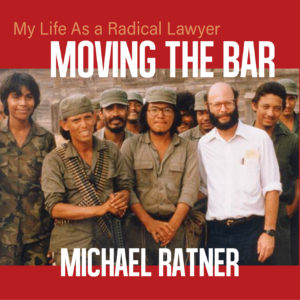
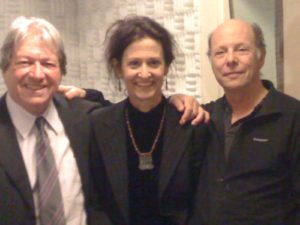
Hosts Heidi Boghosian and Michael Smith interviewed some of Michael Ratner’s closest friends and colleagues as part of a special broadcast highlighting Michael Ratner’s legal work and mentorship. The special also marked the upcoming release of Michael Ratner’s autobiography Moving The Bar: My Life As A Radical Lawyer published by OR Books. In this one hour taken from the two hour fundraiser broadcast, we hear from attorneys including Eleanor Stein, Richard Levy, Ray Brescia, David Cole and Baher Azmy.
—
Michael Ratner’s pathbreaking legal and political work is unmatched. He provided crucial support for the Cuban Revolution and won the seminal case in the Supreme Court guaranteeing the right of habeas corpus to Guantanamo detainees. Michael also challenged U.S. policy in Iraq, Haiti, Nicaragua, Guatemala, Puerto Rico and Israel-Palestine. This book is a testament to his unflagging efforts on behalf of the poor and oppressed around the world.
– Marjorie Cohn, Professor Emerita, Thomas Jefferson School of Law
Michael Ratner personified lawyering that brought both radical and human values into challenges to the use of governmental power to violate the essence of the Bill of Rights. From the torture of prisoners after 911 to the massive racial profiling by the New York Police Department, Michael’s voice and vision continue to resonate. This book provides a powerful testament to the spirit of this extraordinary man.
– Attorney Bill Goodman

Civil Liberties, Human Rights, Political Prisoner, Prison Industry, Supreme Court, Surveillance, Truth to Power
Podcast: Play in new window | Download
- Commentary On The 2020 Election By Attorney Jim Lafferty
—-
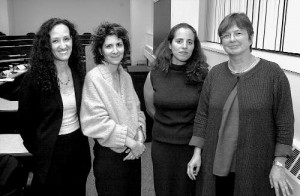
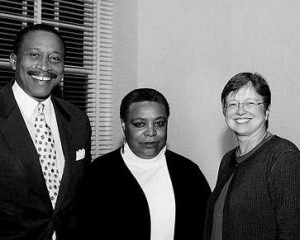
Lawyers You’ll Like: Professor Holly Maguigan
In our Lawyers You’ll Like series we’re joined by Professor Holly Maguigan, Professor of Clinical Law at the New York University School of Law, where she teaches Comparative Criminal Justice Clinic: Focus on Domestic Violence and Evidence. Professor Maguigan is an expert on the criminal trials of battered women. Her research and teaching is interdisciplinary. Professor Maguigan is a member of the Family Violence Prevention Fund’s National Advisory Committee on Cultural Considerations in Domestic Violence cases. She serves on the boards of directors of the National Clearinghouse for the Defense of Battered Women and the William Moses Kunstler Fund for Racial Justice. She is a past co-president of the Society of American Law Teachers, the largest membership organization of law professors in the U.S.
Professor Holly Maguigan:
- I was doing medieval history and I was at Berkeley. It was 1967 and Oakland stopped the draft.
- I got very interested in the anti-war politics.
- I hated lawyers. I really hated lawyers. They were boring. They talked about themselves all the time. They only had stories about their cases and how great they were and they would never post bail when people got arrested.
- The University of Pennsylvania in Philadelphia is where I stayed for 17 years.
- First I started out as a public defender. I loved being a public defender, it was the beginning and end of everything I hoped it would be.
- That’s where I met David Rudovsky and David Kairys. They were then defenders while I was a student.
- After they went out on their own, they kept inviting me to join them. I kept putting it off because I loved being a defender so much.
- In Philadelphia there was much more actual litigation, not just motion litigation there’s a lot of that here in New York City but actual trials.
- You had a sense, there was an analysis that people were doing life on the installment plan and you needed to do what you could to kick them loose any particular time.
- It was a community in its own odd way and I found it difficult to leave it.
- I was doing major felonies within a couple of years.
- David Kairys was very focused on constitutional litigation and government misconduct. He did the Camden 28 which was a big draft resistance case.
- My interest was more into criminal defense.
- Grand juries (all over the country) convened to investigate the alleged transportation of Patty Hearst by the SLA from California where she had been captured.
- He was a killer. (Frank Rizzo) There was no question. More people died in police actions before or since.
- I don’t mean to suggest that all the police started out as homocidal. This was a situation which from the top down came the message if you’re a good cop then you’re going to take people out however you think you need to.
- I knew about race and class bias in the court room as much as a white woman who was middle class could know.
- I was just blown away by what happens when you add hatred of women to hatred of black people and hatred of poor people.
- Judges would go by me in the hall and say Maguigan, ahem, you didn’t give me anything this Christmas, not even one lousy bottle, you’re not getting any assignments.
- Judges would do things, like open the drawer in their chambers, and there would be wads of bills, and they’d let you know.
- I developed a specialty on women who kill men.
- In the early eighties a group in Philadelphia called Women Against Abuse began working and they did advocacy for battered women accused of crime and meant a huge difference.
- The battered women cases I was working on were quite consuming because people then didn’t know very much in how to try these cases.
- The judges expected you to plead insanity or guilty. Reasonable doubt was a consideration at sentencing not at trial.
- There were cases that did require teams. There was no question.
- I wanted to be in court. I wanted to be in the presence of that conflict between the authorities and regular people.
- I went to NYU where I taught in the criminal defense clinic for many years.
- To see students react to the great stories their clients have is just amazing.
- SALT (Society of American Law Teachers) is about who gets into law school, what they learn and who teaches them. It’s about access to justice. It’s about relating to law school as a place where you train people to do social justice. SALT’s focus is on students and teaching.
- Holly Maguigan to be honored by Society of American Law Teachers.
Guest – Professor Holly Maguigan teaches a criminal defense clinic and one in comparative criminal justice as well as a seminar in global public service lawyering and a course in evidence. She is an expert on the criminal trials of battered women. Her research and teaching are interdisciplinary. Of particular importance in her litigation and scholarship are the obstacles to fair trials experienced by people accused of crimes who are not part of the dominant culture. Professor Maguigan is a member of the Family Violence Prevention Fund’s National Advisory Committee on Cultural Considerations in Domestic Violence cases. She serves on the boards of directors of the National Clearinghouse for the Defense of Battered Women and the William Moses Kunstler Fund for Racial Justice. She is a past co-president of the Society of American Law Teachers, the largest membership organization of law professors in the U.S.
Civil Liberties, Habeas Corpus, Human Rights, Supreme Court, Surveillance, Targeting Muslims, Torture, Truth to Power
Podcast: Play in new window | Download
- Commentary On Julian Assange’s Case By Attorney Jim Lafferty
—
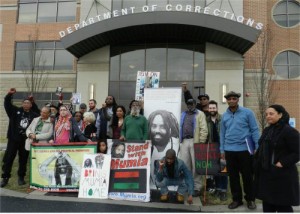
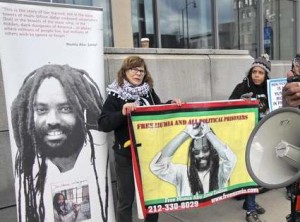
Capital Punishment: Mumia Abu-Jamal And Heidi Boghosian
Journalist and activist Mumia Abu-Jamal spent 40 years on death row in Pennsylvania. As listeners will recall, in 2012 his death penalty sentence was overturned by a Federal Court and he entered general population. While on death row he published 13 books and numerous commentaries on issues of social justice and the carceral state. In a special interview, Mumia joins us to reflect on capital punishment and its relationship to our modern society.
—-

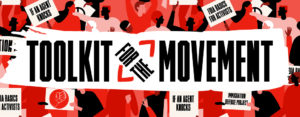
CCR: A Rights Based Vision for the First 100 Days
Some political skeptics , distrusting of the incoming Biden administration, are saying that it’s “ out with the old in with the older.“ That is that the old neo-liberal crew from the Obama/Clinton days are back in power and that little will change, nothing fundamental.
They are especially concerned about the impending climate catastrophe, systemic racism, the threat of nuclear war, the shifting of wealth from the bottom to the top, and the never ending forever wars. The Center for Constitution Rights has developed a comprehensive program to challenge this. It is called A Rights Based Vision for the First 100 Days.
Guest – Center for Constitutional Rights Advocacy Director attorney Nadia Ben-Youssef, is a graduate of Princeton University and the Boston College of Law. She has worked with the Adalah Justice Project for Palestinian rights In the Negev in southern Israel.





















